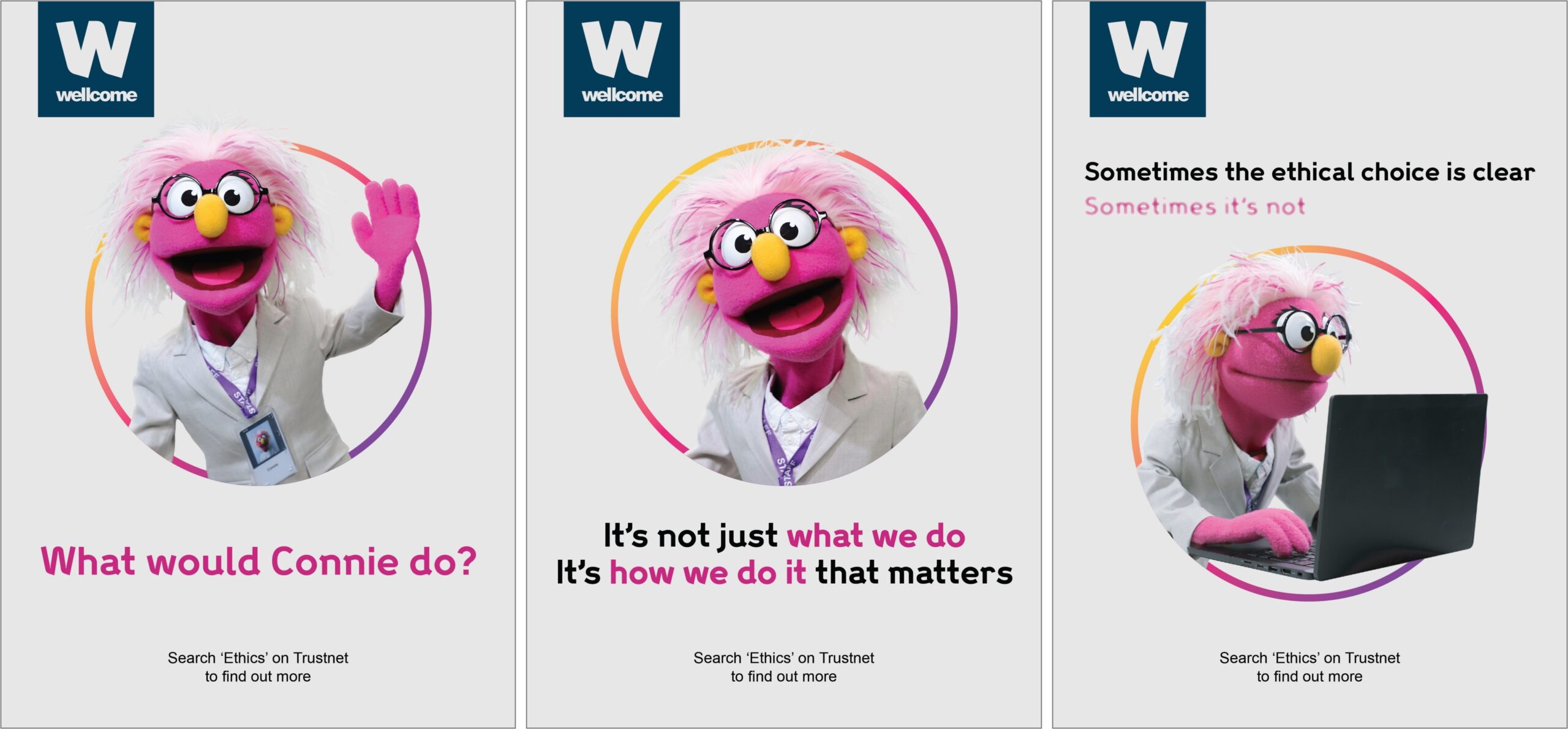
“It’s not just what we do, it’s how we do it that matters”
– Fraser Simpson, Wellcome Trust
It’s a challenge for any organisation to launch and embed a Code of Ethics. While staff will tell you that the values and approaches their employer embodies matter – getting round to reading an 80-page compliance rulebook line by line is never going to rise to the top of anyone’s to-do list.
So how do you ensure your colleagues are engaging and complying with your Code of Conduct? And how does that correspond to your Whistleblowing Policy? (which you’ll be hoping your team members understand and refer to if they identify anything that breaks the Code).
One organisation that has taken a somewhat maverick and unconventional approach to this is The Wellcome Trust. A global charitable foundation, they’re driven by a mission to solve urgent world health issues. In order to preserve the organisation’s leading reputation all Wellcome colleagues need to uphold the highest standards of conduct and ethics.
In launching their Code of Ethics to all staff they wanted to show how it connects to the organisation’s beliefs, values and mission, rather than imposing a set of rules that needed to be followed by the letter.
Their solution? A bright pink puppet called Connie (short for Conscience).
And the strapline? “What would Connie do?”

Fraser Simpson, Wellcome’s long-time Associate General Counsel for Ethics, Governance and Compliance, recently joined our most recent Protect away-day. He explained that Connie (they/them) has been adopted as a key member of the Ethics team – complete with their personal intranet profile and email address. Connie’s presence in training sessions, leadership meetings and team discussions has instantly made ethical issues more approachable.
Since Connie was “on-boarded”, Fraser says there’s been a seismic shift in the way colleagues engage with the Ethics, Governance and Compliance team – and he believes Connie is here to stay. And while he says a puppet isn’t the right approach for all organisations, it’s working for Wellcome.
Ethics is everyone’s business, and making ethical choices is an everyday activity. Fraser says the behavioural science approach has made the topic of ethics much softer and accessible. Overseeing Wellcome’s Speak Up programme he wants to hear everything of concern, but at the same time hear nothing. He says if the ethical culture is strong and well-established then whistleblowing (or Speak Up) concerns and problems will be talked about openly – making his job, and that of his team, much easier.
A Whistleblowing Policy and Code of Ethics on your intranet is only going to go so far in ensuring staff engage with and understand how to identify and raise issues of concern in the workplace. Bringing that Code and Policy to life – in a tailored way that suits your organisation and workforce – is essential to truly embedding an effective ethical culture.
